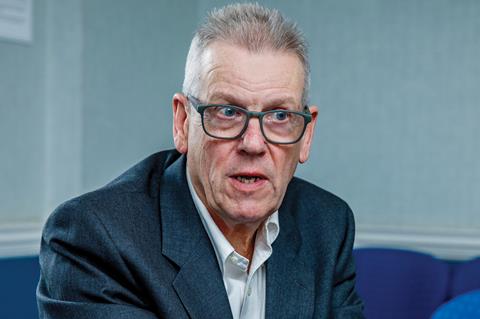Nearly nine years of litigation entered its last lap this morning with an order for the assessment of legal costs in the mammoth collective action over Mastercard interchange fees. The Competition Appeal Tribunal's judgment in Merricks v Mastercard reveals the appointment of retired costs judge Andrew Gordon Saker as an independent expert.
The written judgment follows a hearing in February this year to approve a settlement agreement reached between Mastercard and class representative Walter Merricks CBE, and opposed by litigation funder Innsworth, which argued that the £200m payment was too low. Merricks today demanded an apology from Innsworth for its attempt to seek damages from him personally.
In the 80-page judgment, acting president Mr Justice Roth approved the provisional settlement. It ringfences £100m for class members, who will have six months to claim from claims administrator Epiq Class Action & Claims Solutions. If the expected 5% of beneficiaries, ie 2.5 million people, come forward, each would receive £45. Should fewer come forward, the payment would be capped at £70 per head.
Of the other £100m, £45,567,946.28 is ringfenced as a minimum return to Innsworth. 'Pot 3', the remaining £54,432,053.72, is available to give Innsworth its return, subject to any further sums that need to be distributed if take-up exceeds 5%. The payment is expected to be capped at £68m, or one and a half times its investment. The funder had sought £179 million.
Unclaimed sums will go to the Access to Justice Foundation, the charity prescribed under the Competition Act 1998.
In a statement following the hand-down, Merricks said the outcome, while only a fraction of the sum originally claimed, represents 'a fair and just outcome' for consumers.
'During the long course of the case which involved winning a key Supreme Court decision, I have established important precedents to ensure that other collective actions that have followed mine, will have a greater prospect of succeeding,' he said. 'I am proud to have achieved a substantial settlement sum, indeed the largest settlement for a group of UK consumers through the English courts.'

On the dispute with the case funder, he said: 'The collective action regime can only flourish with the support and backing of litigation funders. In most cases, those funders provide huge financial commitment, understand the risks involved and respect their role. Unfortunately, that was not the situation in this case. Not only have I had to fight Mastercard, but I also had to fight Innsworth Capital. To try to prevent me from settling when I believed it was in the best interests of my class to do so, it threatened and then commenced legal action against me personally seeking unlimited damages which might have meant my bankruptcy. It then tried – and failed - to keep secret details of what it had done.
Read more:
In depth: Eight-year Mastercard saga rumbles on
Litigation funder to challenge 'premature' Mastercard case settlement
'At the point of settlement, despite having been my opponent for so long, Mastercard recognised the intolerable position I was being put in and agreed to make £10m available to me to protect myself against Innsworth’s action. The tribunal’s judgment concludes there was nothing improper about this arrangement, and that it did not in any way call into question my decision to settle. The tribunal expressly recognised why I sought to get such protection in place. I sincerely hope that Innsworth Capital apologises and withdraws its claim. As the tribunal judgment clearly demonstrates it has no merit and should never have been brought. I gratefully acknowledge Mastercard’s decision to make £10m available to me to protect myself against Innsworth. Its action allowed me to sleep at night at a critical moment.'
Merrricks expressed 'lasting gratitude and huge admiration' to his solicitor in the case, Boris Bronfentrinker of transatlantic firm Willkie Farr & Gallagher.
A spokesperson for Innsworth said: 'Innsworth has at all times acted in accordance with its rights and obligations under the litigation funding agreement. There are no findings regarding Innsworth’s conduct in the judgment. We are also unaware of there being any complaint made to The Association of Litigation Funders. '
The Access to Justice Foundation's chief executive Clare Carter said: 'We have already begun working with partners to ensure any unclaimed money gets distributed to charities that will improve access to justice for those that need it the most.'
This article is now closed for comment.





























6 Readers' comments